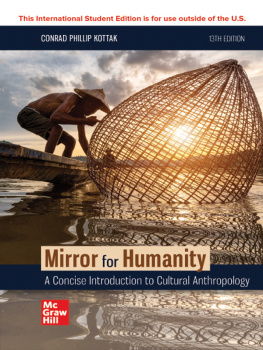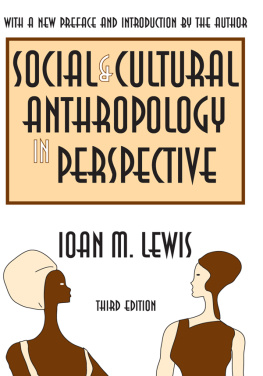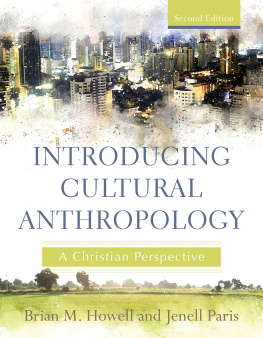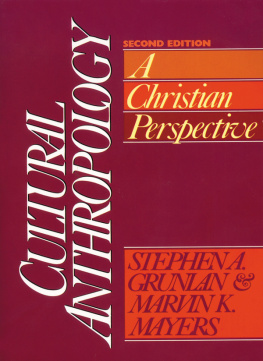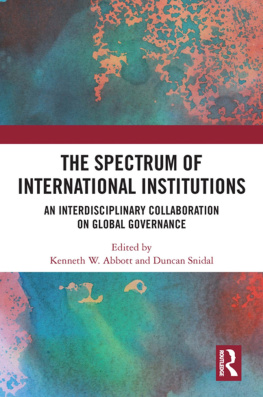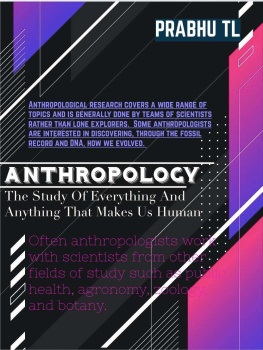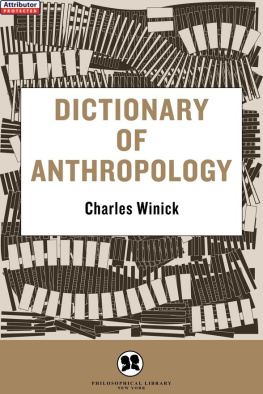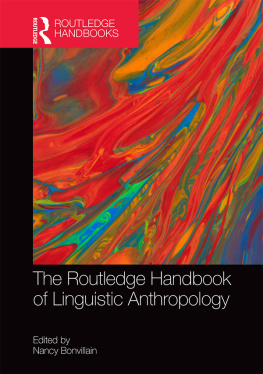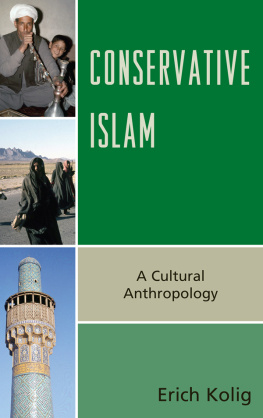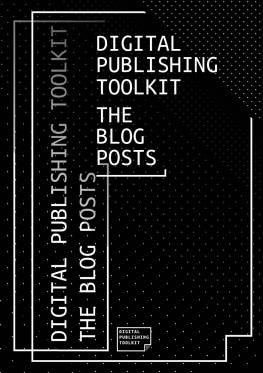Kenneth J. Guest - Cultural Anthropology: A Toolkit for a Global Age
Here you can read online Kenneth J. Guest - Cultural Anthropology: A Toolkit for a Global Age full text of the book (entire story) in english for free. Download pdf and epub, get meaning, cover and reviews about this ebook. year: 2020, genre: Politics. Description of the work, (preface) as well as reviews are available. Best literature library LitArk.com created for fans of good reading and offers a wide selection of genres:
Romance novel
Science fiction
Adventure
Detective
Science
History
Home and family
Prose
Art
Politics
Computer
Non-fiction
Religion
Business
Children
Humor
Choose a favorite category and find really read worthwhile books. Enjoy immersion in the world of imagination, feel the emotions of the characters or learn something new for yourself, make an fascinating discovery.

- Book:Cultural Anthropology: A Toolkit for a Global Age
- Author:
- Genre:
- Year:2020
- Rating:4 / 5
- Favourites:Add to favourites
- Your mark:
- 80
- 1
- 2
- 3
- 4
- 5
Cultural Anthropology: A Toolkit for a Global Age: summary, description and annotation
We offer to read an annotation, description, summary or preface (depends on what the author of the book "Cultural Anthropology: A Toolkit for a Global Age" wrote himself). If you haven't found the necessary information about the book — write in the comments, we will try to find it.
Cultural Anthropology: A Toolkit for a Global Age — read online for free the complete book (whole text) full work
Below is the text of the book, divided by pages. System saving the place of the last page read, allows you to conveniently read the book "Cultural Anthropology: A Toolkit for a Global Age" online for free, without having to search again every time where you left off. Put a bookmark, and you can go to the page where you finished reading at any time.
Font size:
Interval:
Bookmark:
Please note that this version of the ebook does not include access to any media or print supplements that are sold packaged with the printed book.
THE HOBO-DYER MAP
Can a map challenge your assumptions about the world? The Hobo-Dyer map reorients the world, placing south at the top and, like the Peters map that follows, uses an equal-area presentation, presenting accurate proportions of countries, continents, and oceans in relation to one another, rather than emphasizing shape or compass bearings. What do you see differently from this new perspective?
THE PETERS WORLD MAP
How do maps shape the way you think about the world and its people? The Earth is round. So every flat, rectangular map involves distortions. But which distortions? The Peters world map is an equal-area map, showing countries and continents in accurate proportion with one another and reducing the visual dominance of the Northern Hemisphere by shifting the equator to the middle of the map, both in sharp contrast to the more familiar Mercator projection.
NATIONAL BOUNDARIES
While humanitys impact is quite evident, and even striking, on many remotely sensed scenes, sometimes, as in the case with most political boundaries, it is invisible. State, provincial, and national boundaries can follow natural features, such as mountain ridges, rivers, or coastlines. Artificial constructs that possess no physical reality-for example, lines of latitude and longitude-can also determine political borders. This world political map represents humanitys imaginary lines as they slice and divide earth.
The National Geographic Society recognizes 192 independent states in the world as represented here. Of those nations, 185 are members of the United Nations.

W. W. Norton & Company has been independent since its founding in 1923, when William Warder Norton and Mary D. Herter Norton first published lectures delivered at the Peoples Institute, the adult education division of New York Citys Cooper Union. The firm soon expanded its program beyond the Institute, publishing books by celebrated academics from America and abroad. By midcentury, the two major pillars of Nortons publishing programtrade books and college textswere firmly established. In the 1950s, the Norton family transferred control of the company to its employees, and todaywith a staff of four hundred and a comparable number of trade, college, and professional titles published each yearW. W. Norton & Company stands as the largest and oldest publishing house owned wholly by its employees.
Copyright 2020, 2017, 2014 by W. W. Norton & Company, Inc.
All rights reserved
Editor: Peter Lesser
Project Editor: Caitlin Moran
Assistant Editor: Anna Olcott
Manuscript Editor: Candace Levy and Rosy Lum
Managing Editor, College: Marian Johnson
Managing Editor, College Digital Media: Kim Yi
Ebook Production Manager: Ashley van der Grinten
Production Manager: Ashley Horna
Media Editor: Eileen Connell
Associate Media Editor: Ariel Eaton
Media Project Editor: Rachel Mayer
Media Editorial Assistant: Samuel Tang
Marketing Manager, Cultural Anthropology: Kandace Starbird
Design Director: Rubina Yeh
Photo Editor: Cat Abelman
Director of College Permissions: Megan Schindel
College Permissions Manager: Bethany Salminen
Permissions Specialist: Elizabeth Trammell
ISBN: 978-0-393-66792-9
ISBN: 978-0-393-42024-1
W. W. Norton & Company, Inc., 500 Fifth Avenue, New York, NY 10110-0017
wwnorton.com
W. W. Norton & Company Ltd., Castle House, 75/76 Wells Street, London W1T 3QT

Kenneth J. Guest is Professor of Anthropology at Baruch College, CUNY, and author of God in Chinatown: Religion and Survival in New Yorks Evolving Immigrant Community . His research focuses on immigration, religion, globalization, ethnicity, and entrepreneurialism.
Professor Guests ethnographic research in China and the United States traces the immigration journey of recent Chinese immigrants from Fuzhou, southeast China, who, drawn by restaurant, garment shop, and construction jobs and facilitated by a vast human smuggling network, have revitalized New Yorks Chinatown. His writing explores the role of Fuzhounese religious communities in China and the United States, the religious revival sweeping coastal China, the Fuzhounese role in the rapidly expanding U.S. network of all-you-can-eat buffets and take-out restaurants, and the higher education experiences of the Fuzhounese second generation.
A native of Florida, Professor Guest studied Chinese at Beijing University and Middlebury College. He received his B.A. from Columbia University (East Asian Languages and Cultures), an M.A. from Union Theological Seminary (Religious Studies), and the M.A., M.Phil., and Ph.D. from The City University of New York Graduate Center (Anthropology).
Anthropology may be the most important course you take in college. That may seem like a bold statement. But heres what I mean.
Cultural Anthropology: A Toolkit
The world in the twenty-first century is changing at a remarkable pace. We are experiencing an interaction with people, ideas, and systems that is intensifying at breathtaking speed. Communication technologies link people instantaneously across the globe. Economic activities challenge national boundaries. People are on the move within countries and between them. As a result, today we increasingly encounter the diversity of humanity, not on the other side of the world but in our schools, workplaces, neighborhoods, religious communities, and families. How will we develop the skills and strategies for engaging and navigating the complex, multicultural, global, and rapidly changing reality of the world around us?
Anthropology is the toolkit you are looking for. Cultural anthropology is the study of humans, particularly the many ways people around the world today and throughout human history have organized themselves to live together: to get along, to survive, to thrive, and to have meaningful lives. This third edition of Cultural Anthropology: A Toolkit for a Global Age will introduce you to the fascinating work of anthropologists and the research strategies and analytical perspectives that anthropologists have developedour tools of the tradethat can help you better understand and engage todays world as you move through it.
I teach Introduction to Cultural Anthropology to hundreds of students every year at Baruch College, a senior college of The City University of New York. Baruch has an incredibly diverse student body, with immigrants from over a hundred countries, speaking dozens of languages and thinking about culture, race, gender, and family in as many different ways. Some of my students will become anthropology majors. More will become anthropology minors. But at Baruch, in fact, most students will become business majors.
This book emerges from my efforts to make anthropology relevant to all of my students as they navigate their everyday lives, think about the world as it is and as it is becoming, and consider tackling the crucial issues of our times. On a practical level, we all employ the skills of anthropology on a daily basis. Every time you walk into a room and try to figure out how to fit into a new group of peoplein your classroom, in a student club, at the office, at a party, in your religious community, when your new love interest takes you home to meet the familyhow in the world do you deduce what the rules are? Where you fit in? What youre supposed to do? What the power dynamics are? What you can contribute to the group?
Font size:
Interval:
Bookmark:
Similar books «Cultural Anthropology: A Toolkit for a Global Age»
Look at similar books to Cultural Anthropology: A Toolkit for a Global Age. We have selected literature similar in name and meaning in the hope of providing readers with more options to find new, interesting, not yet read works.
Discussion, reviews of the book Cultural Anthropology: A Toolkit for a Global Age and just readers' own opinions. Leave your comments, write what you think about the work, its meaning or the main characters. Specify what exactly you liked and what you didn't like, and why you think so.

